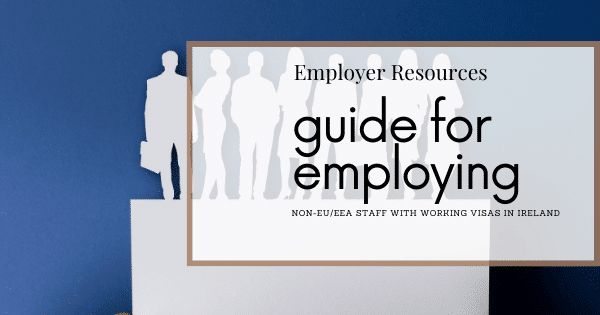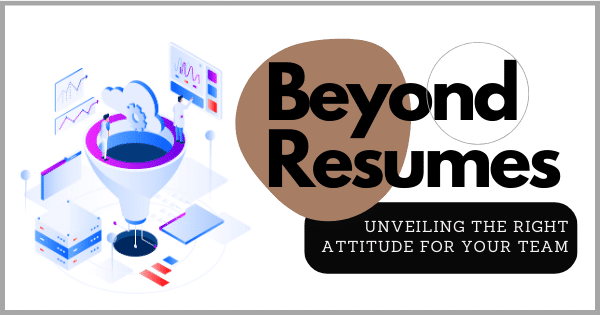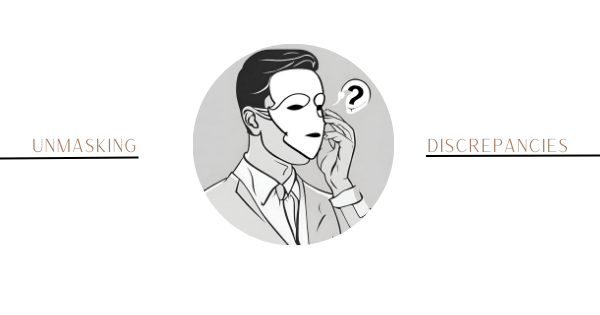Employer Resources – Work Permits in Ireland

- Introduction:
- Understanding Visa Types:
- Employment Contracts:
- Sponsoring Exceptional Candidates: The Critical Skills Employment Permit
- Additional Considerations:
- Sponsoring for Roles Not on the Critical Skills Occupation List:
- Eligibility Criteria:
- Job Offer and Employer Requirements:
- Labor Market Needs Test:
- Application Process:
- Renewal Simplification:
- Conclusion:
- Key Takeaways:
Introduction:
Employing highly skilled individuals from outside the European Union (EU) can bring valuable talent and diverse perspectives to your Irish business. However, navigating the different visa options and sponsorship processes can be complex. This guide provides essential information for employers seeking to understand the various working visas available to non-EU staff in Ireland, including the processes for sponsoring exceptional candidates and roles not on the Critical Skills Occupation List. Whether you’re considering the highly sought-after Stamp 4 visa or the benefits of the Critical Skills Employment Permit, this guide will equip you with the knowledge needed to make informed decisions and ensure a smooth experience for both you and your potential employee.
Understanding Visa Types:
Before employing non-EU staff, it’s crucial to understand their visa type, as it dictates their work eligibility. Here’s a revised overview:
- Stamp 1: This widely used visa allows work for a specific employer, job, and duration. Most non-EU employees will hold this visa.
- Stamp 1G: This spouse/partner visa allows work without additional permits if the primary holder has a critical skills permit.
- Stamp 2: This visa allows full-time students enrolled in approved programs to work part-time (up to 20 hours per week) during the academic year and full-time during holidays.
- Stamp 2A: This visa is for non-EU students taking short courses (usually less than 3 months) and does not grant permission to work.
- Stamp 3: This visa is primarily for non-working individuals like extended holidaymakers, volunteers, or those in non-profit activities. It does not allow work or business activities.
- Stamp 4: This highly sought-after visa grants unrestricted work and residency in Ireland. However, it’s not obtainable through self-sponsorship.
Employment Contracts:
- Stamp 1 and 1G holders: Their contracts can be permanent or temporary, aligned with the visa validity period.
- Stamp 2 holders: Their contracts are limited to part-time work during the academic year and full-time work during holidays.
- Stamp 2A and 3 holders: These visas do not permit employment.
- Stamp 4 holders: They have no restrictions on contract types.
Sponsoring Exceptional Candidates: The Critical Skills Employment Permit
The Critical Skills Employment Permit attracts highly skilled individuals to Ireland, encouraging them to take up permanent residence. Here are the key points:
- Eligible Occupations: This permit is for roles critical to the Irish economy, highly demanded, and requiring specific skills (e.g., ICT professionals, engineers). These are listed in the Critical Skills Occupations List (link needed).
- Benefits for Employers:
- No Labour Market Needs Test: Employers don’t need to prove they couldn’t find suitable EU/EEA candidates.
- Immediate Family Reunification: Permit holders can apply for family reunification, and their dependents/partners/spouses can seek employment with a Dependant/Partner/Spouse Employment Permit (currently free).
- Benefits for Employees:
- Residence and Work Permission: After the permit’s duration, they can apply for long-term residency without an employment permit.
- Employment Rights and Flexibility: They have Irish employment rights and can change employers after one year (subject to policies).
- Application Process: Either the employee or employer can apply.
- Renewal Simplification: Renewal doesn’t require application through the Department of Enterprise, Trade, and Employment.
- Eligibility Criteria: Relevant qualifications, skills, experience, and (for specific salary ranges) degree qualifications are required.
Additional Considerations:
- Job offers under two years: Consider a General Employment Permit for such cases (link needed).
- Consult experts: Seek guidance from immigration professionals for compliance and smooth navigation.
Sponsoring for Roles Not on the Critical Skills Occupation List:
This process differs from the Critical Skills Employment Permit. Here’s what employers need to know:
Eligibility Criteria:
- The prospective employee must possess relevant qualifications, skills, and experience for the job.
- For eligible jobs:
- €38,000 or more annual salary: A degree or higher qualification is required.
- €64,000 or more annual salary: A degree or equivalent experience is necessary.
- Nurses and midwives need qualifications recognized by the Nursing and Midwifery Board of Ireland.
Job Offer and Employer Requirements:
- The company offering the job must be:
- Registered with Revenue.
- Trading in Ireland.
- Registered with the Companies Registration Office.
- The offer must be:
- For at least two years.
- Direct employment and payment by the employer in Ireland.
- Recruitment agencies and intermediaries cannot offer jobs for this permit.
Labor Market Needs Test:
Unlike the Critical Skills route, a labour market needs test is mandatory. This involves:
- Advertising the vacancy with the Department of Employment Affairs and Social Protection Employment Services/EURES network for 2 weeks.
- Advertising in a national newspaper for 3 days.
Application Process:
Similar to the Critical Skills route, either the employee or employer can apply. The permit is issued to the employee with a copy for the employer.
Renewal Simplification:
Renewal doesn’t require application through the Department of Enterprise, Trade, and Employment.
Conclusion:
In conclusion, navigating the complexities of employing non-EU staff in Ireland can be simplified with a clear understanding of different visa types, their work limitations, and sponsorship options available. This guide has provided a comprehensive overview of the various visas, the Critical Skills Employment Permit, and the process for sponsoring individuals whose roles fall outside of this critical skills list. Remember, crucial advice to retain is the importance of consulting with immigration professionals throughout the process. Their expertise can ensure your compliance with regulations, streamline the application process, and minimise potential delays. By effectively navigating these aspects, you can unlock the valuable contributions that talented non-EU individuals can bring to your Irish workforce.
Key Takeaways:
- Understand the employee’s visa type and its work limitations.
- Offer contracts aligned with visa work authorisation.
- Do not employ individuals on visas that prohibit work (Stamp 2A & 3).
- Consider the Critical Skills Employment Permit for exceptional employees in specific roles.
- Conduct a Labor Market Needs Test for positions not on the Critical Skills Occupation List.
- Consult immigration professionals for compliance and guidance.
This guide provides a general overview. Specific regulations and requirements may change; consult official government resources or immigration professionals for the latest information.






